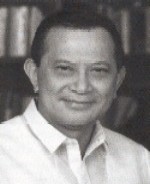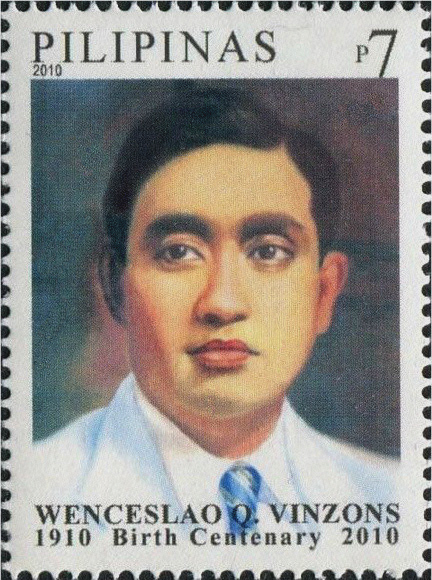|
Christian Monsod
Christian S. Monsod is a Filipino lawyer who served as chair of the Commission on Elections (COMELEC). He was one of the framers of the 1987 Constitution of the Philippines. He is the founder and honorary chair of the Legal Network for Truthful Elections (LENTE) and pioneer of the National Citizens' Movement for Free Elections (NAMFREL). Early life and education Monsod graduated from the University of the Philippines College of Law. He was a member of the Upsilon Sigma Phi. He passed the bar examinations in 1960. Career Monsod worked for his father upon passing the bar. He worked for the World Bank Group from 1963 to 1970, and worked there as an operations officer for about two years in Costa Rica and Panama, negotiating loans and coordinating legal, economic, and project work of the bank. Upon returning to the Philippines in 1970, he worked with the Meralco Group and served as chief executive officer of an investment bank and subsequently of a business conglomerate. In 19 ... [...More Info...] [...Related Items...] OR: [Wikipedia] [Google] [Baidu] |
The Honorable
''The Honourable'' (British English) or ''The Honorable'' (American English; see spelling differences) (abbreviation: ''Hon.'', ''Hon'ble'', or variations) is an honorific style that is used as a prefix before the names or titles of certain people, usually with official governmental or diplomatic positions. Use by governments International diplomacy In international diplomatic relations, representatives of foreign states are often styled as ''The Honourable''. Deputy chiefs of mission, , consuls-general and consuls are always given the style. All heads of consular posts, whether they are honorary or career postholders, are accorded the style according to the State Department of the United States. However, the style ''Excellency'' instead of ''The Honourable'' is used for ambassadors and high commissioners. Africa The Congo In the Democratic Republic of the Congo, the prefix 'Honourable' or 'Hon.' is used for members of both chambers of the Parliament of the Democratic Re ... [...More Info...] [...Related Items...] OR: [Wikipedia] [Google] [Baidu] |
University Of The Philippines College Of Law
The University of the Philippines College of Law (often referred to as UP Law) is the law school of the University of the Philippines Diliman. Formally established in 1911 in UP Manila, it is the third oldest continually-operating law school in the Philippines. Since 1948, it has been based in UP Diliman in Quezon City, the flagship of the UP System's eight constituent universities. The college also holds extension classes at the Bonifacio Global City campus of UP Diliman in Taguig and the Iloilo City campus of UP Visayas. UP Law is noted for having produced the largest number of bar topnotchers and maintaining one of the highest bar passing rates among law schools in the Philippines. History It was George Malcolm who had first proposed the establishment of the College of Law within the University of the Philippines system. However, the Board of Regents of the University of the Philippines had initially resisted the proposal. Malcolm thus arranged for the Manila YMCA to ... [...More Info...] [...Related Items...] OR: [Wikipedia] [Google] [Baidu] |
University Of The Philippines College Of Law Alumni
A university () is an institution of higher (or tertiary) education and research which awards academic degrees in several academic disciplines. Universities typically offer both undergraduate and postgraduate programs. In the United States, the designation is reserved for colleges that have a graduate school. The word ''university'' is derived from the Latin ''universitas magistrorum et scholarium'', which roughly means "community of teachers and scholars". The first universities were created in Europe by Catholic Church monks. The University of Bologna (''Università di Bologna''), founded in 1088, is the first university in the sense of: *Being a high degree-awarding institute. *Having independence from the ecclesiastic schools, although conducted by both clergy and non-clergy. *Using the word ''universitas'' (which was coined at its foundation). *Issuing secular and non-secular degrees: grammar, rhetoric, logic, theology, canon law, notarial law.Hunt Janin: "The universi ... [...More Info...] [...Related Items...] OR: [Wikipedia] [Google] [Baidu] |
University Of The Philippines Alumni
A university () is an institution of higher (or tertiary) education and research which awards academic degrees in several academic disciplines. Universities typically offer both undergraduate and postgraduate programs. In the United States, the designation is reserved for colleges that have a graduate school. The word ''university'' is derived from the Latin ''universitas magistrorum et scholarium'', which roughly means "community of teachers and scholars". The first universities were created in Europe by Catholic Church monks. The University of Bologna (''Università di Bologna''), founded in 1088, is the first university in the sense of: *Being a high degree-awarding institute. *Having independence from the ecclesiastic schools, although conducted by both clergy and non-clergy. *Using the word ''universitas'' (which was coined at its foundation). *Issuing secular and non-secular degrees: grammar, rhetoric, logic, theology, canon law, notarial law.Hunt Janin: "The universi ... [...More Info...] [...Related Items...] OR: [Wikipedia] [Google] [Baidu] |
Ateneo De Manila University
, mottoeng = Light in the Lord , type = Private, research, non-profit, coeducational basic and higher education institution , established = December 10, 1859 , religious_affiliation = Roman Catholic ( Jesuits) , academic_affiliations = ACUCA AJCU-AP AUN PAASCU IAJU , endowment = , chairman = Bernadine T. Siy , head_label = President , head = Fr. Roberto C. Yap, SJ , faculty = approx. 2,470 , administrative_staff = 3,015 , students = 15,269 (university level) , undergrad = 8,614 , postgrad = 6,655 , doctoral = , other = approx. 6,500 (grade school and high school) , city = , location = Loyola Heights, Quezon City, Metro Manila, Philippines * Grade School * Junior High School * Senior High School * Loyola Schools * School of Government Salcedo Village, Makati, Metro Manila, Philippines Rockwell Center, Makati, Metro Manila, Philippines * School of Law * Graduate School of B ... [...More Info...] [...Related Items...] OR: [Wikipedia] [Google] [Baidu] |
Presidency Of Corazon Aquino
Corazon Aquino became the 11th President of the Philippines following the People Power Revolution or EDSA 1, and spanned a six-year period from February 25, 1986, to June 30, 1992. Aquino's relatively peaceful ascension to the Philippine presidency signaled the end of authoritarian rule of Ferdinand Marcos in the Philippines, and drew her and the Filipino people international acclaim and admiration. During the first months of Aquino's presidency, the country experienced radical changes and sweeping democratic reforms. Aquino created the Presidential Commission on Good Government (PCGG), which was tasked to go after the Marcos ill-gotten wealth; however, after her presidency, the PCGG itself was also implicated by corruption scandals when it was alleged that officials wanted a cut of the Marcos assets and officials were "milking" sequestered assets. Aquino, being a revolutionary president by virtue of people power, repealed & abolished repressive laws under her predecessor, re ... [...More Info...] [...Related Items...] OR: [Wikipedia] [Google] [Baidu] |
1986 Philippine Presidential Election
The 1986 Philippine presidential and vice presidential elections were held on February 7, 1986. Popularly known as the 1986 snap election, it is among the landmark events that led up to the People Power Revolution, the downfall of the presidency of Ferdinand Marcos, and the accession of Corazon C. Aquino as president. Background Influence of the American media After being dared by an American journalist, President Ferdinand E. Marcos declared a snap election during an interview on the American Broadcasting Company political affairs programme, '' This Week with David Brinkley'' in November 1985. On December 3, the Batasang Pambansa (National Assembly) passed a law setting the date of the election on February 7, 1986. On February 4, 1986, Marcos declared February 6 and 7 as nationwide non-working special public holidays to "give all registered voters fullest opportunity to exercise their right of suffrage." The assassination of Senator Benigno "Ninoy" Aquino Jr. on August 2 ... [...More Info...] [...Related Items...] OR: [Wikipedia] [Google] [Baidu] |
Panama
Panama ( , ; es, link=no, Panamá ), officially the Republic of Panama ( es, República de Panamá), is a transcontinental country spanning the southern part of North America and the northern part of South America. It is bordered by Costa Rica to the west, Colombia to the southeast, the Caribbean Sea to the north, and the Pacific Ocean to the south. Its capital and largest city is Panama City, whose metropolitan area is home to nearly half the country's million people. Panama was inhabited by indigenous tribes before Spanish colonists arrived in the 16th century. It broke away from Spain in 1821 and joined the Republic of Gran Colombia, a union of Nueva Granada, Ecuador, and Venezuela. After Gran Colombia dissolved in 1831, Panama and Nueva Granada eventually became the Republic of Colombia. With the backing of the United States, Panama seceded from Colombia in 1903, allowing the construction of the Panama Canal to be completed by the United States Army Corps of Eng ... [...More Info...] [...Related Items...] OR: [Wikipedia] [Google] [Baidu] |
Costa Rica
Costa Rica (, ; ; literally "Rich Coast"), officially the Republic of Costa Rica ( es, República de Costa Rica), is a country in the Central American region of North America, bordered by Nicaragua to the north, the Caribbean Sea to the northeast, Panama to the southeast, the Pacific Ocean to the southwest, and maritime border with Ecuador to the south of Cocos Island. It has a population of around five million in a land area of . An estimated 333,980 people live in the capital and largest city, San José, with around two million people in the surrounding metropolitan area. The sovereign state is a unitary presidential constitutional republic. It has a long-standing and stable democracy and a highly educated workforce. The country spends roughly 6.9% of its budget (2016) on education, compared to a global average of 4.4%. Its economy, once heavily dependent on agriculture, has diversified to include sectors such as finance, corporate services for foreign companies, phar ... [...More Info...] [...Related Items...] OR: [Wikipedia] [Google] [Baidu] |
Upsilon Sigma Phi
The Upsilon Sigma Phi () is the oldest Greek-letter organization and fraternity in Asia. Founded in 1918, it is also the oldest student organization in continuous existence in the University of the Philippines. It has two chapters — a single chapter for the UP Diliman and UP Manila campuses, and another for UP Los Baños. Membership remains exclusive to UP students, and is by invitation only. Members are known as "Fellows" or "Upsilonians". Its vast but tight-knit network of prominent alumni both in public service and private enterprise has led several publishers to cite it as the most prestigious, illustrious, and influential fraternity in the Philippines. Among its alumni are two Philippine presidents, a vice president, fifteen senators, fourteen Supreme Court justices (including three chief justices), three House Speakers, a Chairman of the United Nations Commission on Human Rights, the only Filipino President of the International Criminal Police Organization (Interpol), t ... [...More Info...] [...Related Items...] OR: [Wikipedia] [Google] [Baidu] |
National Citizens' Movement For Free Elections
The National Citizens' Movement for Free Elections or NAMFREL is an election watchdog in the Philippines. It was the first and one of the most famous election watch campaigns. It is known to have introduced non-partisan national election monitoring to the Philippines after exposing the issues involved with the 1986 Snap Elections. NAMFREL was co-founded by Jose S. Concepcion, Jr., and was its first National Chairperson. NAMFREL was formally organized in October 1983 as an offshoot of the New Voters Registration Committee, which was formed in the 1960s. It currently has the support of more than 140 benefactors and 125 organizations. Its current national chairperson is Augusto C. Lagman. NAMFREL's goal is to ensure "free, orderly and honest elections" in the Philippines. It is a non-partisan organization with over 250,000 member-volunteers from different religious, civic, business, professional, labor, youth, educational, and non-government organizations. The Commission on Electi ... [...More Info...] [...Related Items...] OR: [Wikipedia] [Google] [Baidu] |
.png)


